The third wave of coffee is coming: coffee shops become new social places.
Nowadays, people can easily tell the difference between cappuccino and American coffee, but few people can tell the difference between Philharmonic pressure, hand pot, Vmur60, ice drops and so on. These are different coffee making methods, which can often be seen in independent boutique coffee shops, which are driving the third wave of coffee.
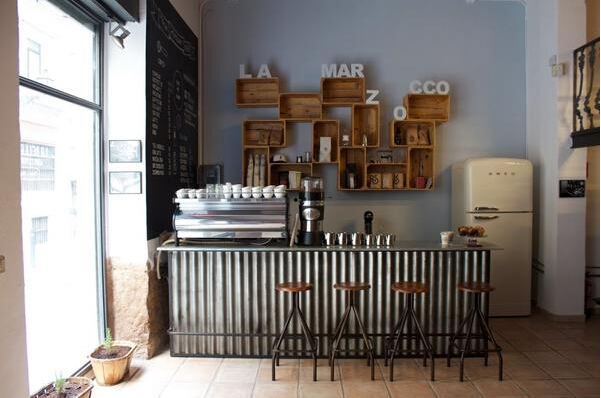
According to the US website QUARTZ, the first wave of coffee appeared in the early 20th century, when the invention and rise of instant coffee pushed coffee to the mass market as a consumer product. After World War II, the Italian method of steam pressure extraction of espresso began to be familiar and accepted, so concentrated-based fancy coffee became popular, and then coffee chains such as Starbucks emerged and became popular, becoming the representative of the second wave of coffee.
Nowadays, people are trying to learn more about the origin of coffee making, and drinking coffee has become an experience rather than just a commodity. Under this third wave, coffee is seen as a craft or craft product, just like good wine. In order to make a perfect coffee drink, the planting, picking, roasting and production of coffee beans are regarded as an important process.
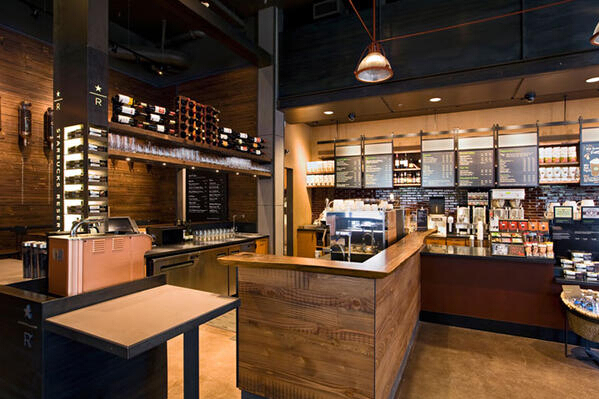
(above: Starbucks Portland store) A highly skilled barista
At the heart of the third wave of coffee are baristas, who are adept at using tools and equipment to make coffee acceptable to the most fastidious connoisseurs. For independent cafes, having a skilled barista is the key. The most skilled baristas travel around the world to participate in coffee festivals and competitions, such as the Coffee Masters contest at the London Coffee Festival (London Coffee Festival).
Baristas are certified professionally by Australian Specialty Coffee Association, Specialist Coffee Association of Europe and other institutions that run competitions and provide officially recognized training in coffee sensory evaluation, roasting and production.
These skills are the key for baristas to unlock the third wave of coffee, bringing consumers a wide range of choices from coffee bean varieties to production processes. Most coffee shops buy coffee beans from their preferred independent roasters, such as Origin, Square Mile, Volcano Coffee Works, or Ancoats. Roasters usually have 1 or 2 coffee stores and supply coffee beans to other people.
In the third wave of coffee, the method of making is as important as the coffee itself. Options include Philharmonic Press, hand Pot, Vmur60, and Ice droplets. Baristas must be careful to control the amount and heat of each glass of water and milk.
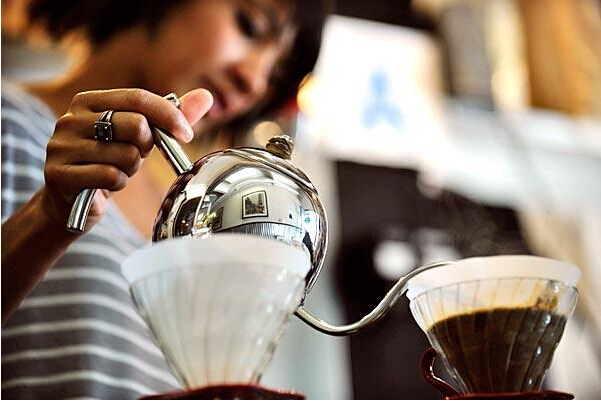
In the UK, for example, coffee shops in Britain have a long history, dating back to the 18th century, providing space for conversation and consumption. At present, coffee shops can be seen everywhere in the high streets of England and are an important part of the city center. They are considered to be important economic drivers, contributing as much as 20.4% to local economic growth.
More importantly, coffee shops are becoming new social places. They are no longer just places for consumption, but gradually become a "third space"-a space outside work and home.
In the UK in 2009, one in nine people visited cafes every day. Today, that proportion has grown to one in five people. This is thanks to the rapid expansion of global coffee chains, the presence of other food retailers in the coffee market, such as McDonald's McCafe, and a significant increase in the number of independent cafes. The coffee market is so large that it is estimated that coffee sales in the UK were about 7.2 billion pounds in 2014; last year, there were more than 18000 stores in the UK, and the number is expected to rise to more than 27000 by 2020.
So far, the UK market is still dominated by these three people: Starbucks, Costa and Caff è Nero. But there are more and more independent coffee shop guides on the market, showing a marked increase in the number of professional coffee shops, including London, the southwest and the north, where coffee festivals are popular, such as London Coffee Festival, Cup North, Edinburgh Coffee Festival and so on. (Huanzhi Jiang Jingjin)
Important Notice :
前街咖啡 FrontStreet Coffee has moved to new addredd:
FrontStreet Coffee Address: 315,Donghua East Road,GuangZhou
Tel:020 38364473
- Prev
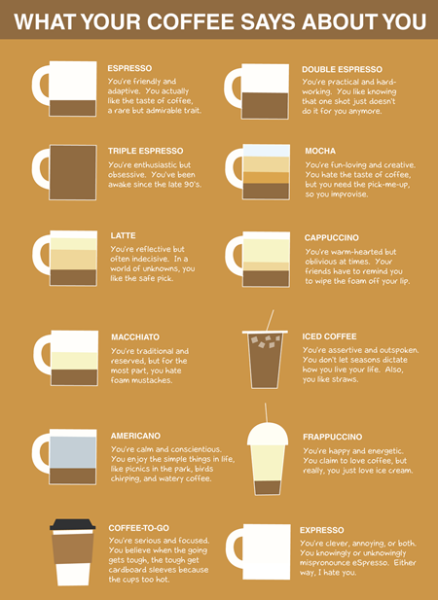
The luxury test: The coffee you choose reveals your personality
Espresso Youre friendly and adaptive. You actually like the taste of coffee, a rare but admirable trait。You're friendly and adaptable. Do you really like the taste of coffee, a rare and valuable trait? Double Espresso
- Next
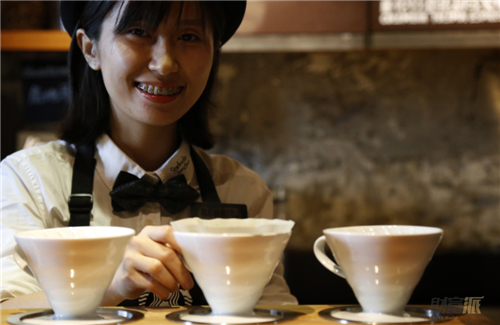
She is not only the champion of the hand contest, but also a coffee craftsman.
Li Jiahui, 23, is one of the few black apron coffee masters at Starbucks, the director of Starbucks Kerry Center's flagship store, and the champion of Starbucks North District handrace. As a coffee craftsman, Li Jiahui hopes to convey the exquisite coffee culture through the coffee made by herself. Would you like to meet this skilled barista? Would you like to participate in Starbucks' free hand-flushing classroom? this
Related
- What is the difference between Indonesian Sumatra Mantinin coffee and gold Mantinin? How to distinguish between real and fake golden Mantelin coffee?
- What does bypass mean in coffee? Why can hand-brewed coffee and water make it better?
- Unexpected! Ruixing Telunsu lattes use a smoothie machine to foam milk?!
- % Arabia's first store in Henan opens into the village?! Netizen: Thought it was P's
- Does an authentic standard mocha coffee recipe use chocolate sauce or powder? Mocha Latte/Dirty Coffee/Salty Mocha Coffee Recipe Share!
- What is the difference between Vietnam egg coffee and Norway egg coffee? Hand-brewed single product coffee filter paper filter cloth filter flat solution!
- What is the difference between sun-cured and honey-treated coffee? What are the differences in the flavor characteristics of sun-honey coffee?
- How to make Italian latte! How much milk does a standard latte use/what should the ratio of coffee to milk be?
- How to make butter American/butter latte/butter Dirty coffee? Is hand-brewed coffee good with butter?
- Is Dirty the cold version of Australian White? What is the difference between dirty coffee/decent coffee and Australian white espresso?

